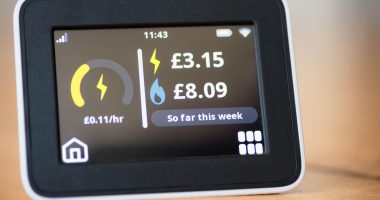RAIL fares will be hiked by 3.8% in March, the Department of Transport has confirmed.
The price rises will heap more misery on commuters who cannot drive or walk to work.
Rail minister Chris Heaton-Harris said that the increase was a “fair balance”.
The rise has been tied to the July retail price index, which is lower than the most recent inflation figures of 5.1%.
Heaton-Harris said it would ensure “we can continue to invest record amounts into a more modern, reliable railway, ease the burden on taxpayers and protect passengers from the highest RPI in years.”
He added: “Delaying the changes until March 2022 offers people the chance to save money by renewing their fares at last year’s price.
“That includes the 100,000 people who are already making savings with cheaper and more convenient flexible season tickets.
“We’re driving ahead with the reforms in our Plan for Rail, creating a more passenger-focused railway that delivers a truly first-class service for everyone.”
The latest rise comes as inflation has risen to its highest level in a decade.
Struggling households are already having to cope with rising energy bills and petrol prices.
Many have also found it difficult to readjust to commuting costs after returning to the office following months of working from home during the pandemic.
Rail fares already went up by 2.6% in March this year.
The increase saw the average commuter’s annual costs rise to £3,144.
Labour said it equated to a 43% increase – or £950 – over the past decade.
Why are rail fares going up?
Rail fares are regulated by the government.
Typically, each year the government uses the July Retail Price Index (RPI) measure of inflation to work out how much ticket prices will go up.
The increase is capped at RPI plus 1%.
RPI in July this year was 3.8% so that means the Department for Transport could have hiked prices by as much as 4.8% under that cap.
Not all fares will increase and the price changes will vary across regions and rail operators.
Historically price rises have taken effect in January, but the government delayed the increase this year because of the Covid pandemic.
It comes just one day after the Bank of England hiked interest rates for the first time in three years.
We pay for your stories!
Do you have a story for The Sun Money team?










